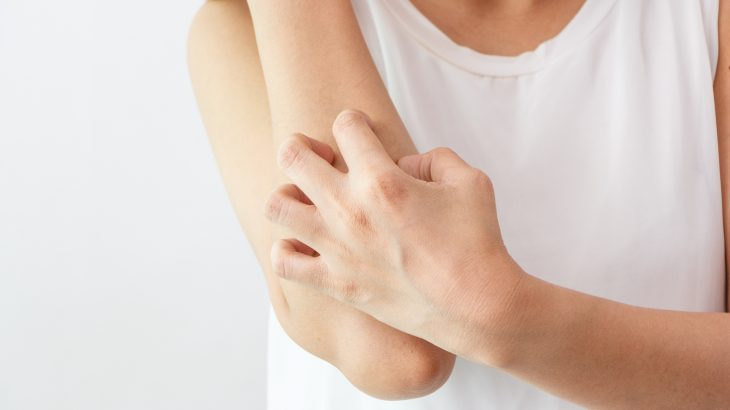Did you know that many people experience skin reactions in cold weather? This condition, known as cold urticaria, appears within minutes of cold exposure. Symptoms may be mild or severe depending on the person. This also applies to people with eczema, a skin condition that causes red, inflamed skin. When the skin is exposed to cold temperatures, it starts to dry and feel itchy. Half of the children who develop eczema are likely to have asthma or allergists.
This is why the allergists at NY Allergy & Sinus Centers work with eczema patients all across New York City to help reduce flares and treat eczema. Eczema can occur in adults and children. Here are some tips to help you and your family manage eczema flares in winter.
Covering Up to Minimize Cold Exposure Prevents Eczema Flares
It’s essential to maintain an even body temperature in the winter to avoid eczema flares. You should stay indoors as much as possible. Exposing the skin to abrupt changes in temperature is likely to trigger a flare-up. When outdoors, cover up completely to minimize exposure. Wear gloves, scarves, and hats. This is especially important for young children who have very sensitive skin.
When dressing young children in the winter, choose soft, breathable fabrics like cotton instead of wool. Young children and babies may not be able to express when they are too warm. It’s helpful to dress them in layers that you can easily remove if temperatures change.
Moisturize Often to Prevent Dry Skin and Eczema Flares
Extreme cold weather triggers dry, cracked skin. This allows for bacteria to enter. We recommend using heavier moisturizers during the winter months to prevent dry skin from recurring. Always carry moisturizer and apply it several times a day to protect your skin. Consult with one of our allergists to determine the best moisturizer for your skin.
Avoid Harsh Soap and Detergents That Irritate Skin
Many soaps and detergents contain harmful chemicals that cause contact dermatitis. Since the skin becomes more sensitive in winter, you should switch to natural or unscented skincare products to reduce irritation. It’s also helpful to avoid hot showers this season. The body cools down quickly after a hot shower, changing the skin’s temperature and triggering eczema flares. Try a warm shower instead.
Use A Humidifier Indoors for Added Moisture
Dry air leads to painful, cracked skin in eczema patients. If the air in your home becomes drier in winter, consider using a humidifier for added moisture. The Environmental Protection Agency recommends an indoor humidity level between 30 – 50%. However, for colder temperatures, indoor humidity levels should not exceed 40%. Too much moisture can cause mold growth and trigger other allergy symptoms. If needed, be sure to seek treatment for your mold allergy at NY Allergy & Sinus Centers.
Avoid Scratching Eczema Affected Areas
The itch-scratch cycle affects many eczema patients. It occurs by rubbing or scratching the skin so intensely that it causes more irritation, and thus, additional itching. While we understand that it is difficult to avoid scratching, it is essential if you want to manage eczema flares. If the itching becomes unbearable, talk to your allergist or dermatologist about prescription creams to soothe your symptoms.
Consult With An Allergist for Additional Treatment
Did you know that eczema can be triggered by allergies? Pollen, mold, and dust mites are common culprits of eczema flares. You may also have additional allergies you are unaware of. We recommend getting allergy tested to determine what’s causing your eczema flares. After allergy testing, our specialists will create a personalized treatment plan tailored to treat your eczema.
Your treatment plan may include:
- hydrocortisone steroid creams to relieve itchiness
- medicated ointments like topical calcineurin inhibitors
- phototherapy, or light therapy, to reduce inflammation
- over-the-counter (OTC) or prescription antihistamines
- OTC or prescription non-steroidal anti-inflammatory drugs (NSAIDs)
Call (212) 686-6321 or book an appointment online to begin managing your eczema. We are proud to offer multiple locations in NYC for your convenience. Don’t wait to visit our top-rated NYC allergists!

